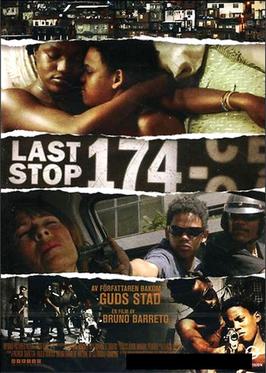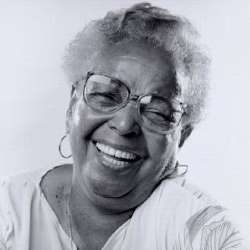
Favela is an umbrella name for several types of working-class neighborhoods in Brazil. The term was first used in the Providência neighborhood in the center of Rio de Janeiro in the late 19th century, which was built by soldiers who had lived under the favela trees in Bahia and had nowhere to live following the Canudos War. Some of the first settlements were called bairros africanos. Over the years, many former enslaved Africans moved in. Even before the first favela came into being, poor citizens were pushed away from the city and forced to live in the far suburbs.

City of God is a 2002 Brazilian epic crime film co-directed by Fernando Meirelles and Kátia Lund, released in Brazil in 2002 and worldwide in 2003. Bráulio Mantovani adapted the story from the 1997 novel of the same name written by Paulo Lins, but the plot is loosely based on real events. It depicts the growth of organized crime in the Cidade de Deus suburb of Rio de Janeiro, between the end of the 1960s and the beginning of the 1980s, with the film's closure depicting the war between the drug dealer Li'l Zé and vigilante-turned-criminal Knockout Ned. The tagline is "If you run, the beast catches you; if you stay, the beast eats you."

Rocinha is the largest favela in Brazil, located in Rio de Janeiro's South Zone between the districts of São Conrado and Gávea. Rocinha is built on a steep hillside overlooking Rio de Janeiro, and is located about one kilometre from a nearby beach. Most of the favela is on a very steep hill, with many trees surrounding it. Around 200,000 people live in Rocinha, making it the most populous favela in Brazil.

Black Orpheus is a 1959 romantic tragedy film made in Brazil by French director Marcel Camus and starring Marpessa Dawn and Breno Mello. It is based on the play Orfeu da Conceição by Vinicius de Moraes, which is itself an adaptation of the Greek legend of Orpheus and Eurydice, set in the modern context of a favela in Rio de Janeiro during Carnaval. The film was an international co-production among production companies in Brazil, France and Italy.

Jacarezinho is a Brazilian neighborhood and also a favela with more than 60,300 residents living in an area of 40 ha. The place is located in the North Zone of Rio de Janeiro city, and it borders the neighborhoods of Jacaré, Méier, Engenho Novo and Triagem. It is the third largest favela in Rio de Janeiro, only behind Rocinha and Complexo do Alemão. The favela expanded along with the city's industrialization, and it became the biggest favela in Rio de Janeiro by the mid-20th century, with a population of 23,000 in 1960. The crucial element in its growth was the industrial boom in the nearby Méier district after World War II, according to historian by Julio César Pino, author of a book about the favelas of Rio de Janeiro.

Cidade dos Homens is a Brazilian television show created by Kátia Lund and Fernando Meirelles, the directors of the film City of God. The series was watched by 35 million viewers in Brazil and was released internationally on DVD shortly after the film. In 2007, a feature-length film based on the series was released.

Benedita Souza da Silva Sampaio is a Brazilian politician. From a humble background, she faced class and racial prejudice, overcoming it to become the first female and Afro-Brazilian governor of the State of Rio de Janeiro and, later, Minister of the said Secretary of State as well in the Government of Luiz Inácio Lula da Silva.

Ceilândia Esporte Clube, commonly referred to as Ceilândia, is a Brazilian professional club based in Ceilândia, Distrito Federal founded on 25 August 1979. It competes in the Campeonato Brasileiro Série D, the forth tier of Brazilian football, as well as in the Campeonato Brasiliense, the top flight of the Distrito Federal state football league.

City of Men is a 2007 Brazilian drama film directed by Paulo Morelli. The screenplay was written by Elena Soarez based on a story by Morelli and Soarez. It is a film version of the TV series Cidade dos Homens that ran for four seasons in Brazil, following the international success of the film City of God (2002), both co-directed by Fernando Meirelles who also co-produces this film.

Ferréz is a Brazilian author, rapper, cultural critic and activist from Zona Sul favela of Capão Redondo in São Paulo, Brazil. He is a leader of Literatura Marginal that started in the late 1990s and early 2000s in the outskirts of São Paulo. His writings are notable for descriptions of graphic violence and the stark reality of individuals living on the margins of society. He emphasises that his writings are addressed to the youth that live in the slums, so that they feel a sense of pride in reading literature that reflects their reality and experiences.

Last Stop 174 is a 2008 Brazilian film directed by Bruno Barreto, written by Braulio Mantovani, produced by Moonshot Pictures and starring Michel Gomes and Marcello Melo, Jr.. The film relates a fictionalized account of the life of Sandro Rosa do Nascimento, a street kid in Rio de Janeiro that survived the Candelária massacre and, in 2000, hijacked a bus. On September 16, 2008, the film was chosen by the Ministry of Culture as the representative of Brazil in the Oscar competition for best foreign film at the ceremony in 2009.

Falcon Rising is a 2014 American action film directed by Ernie Barbarash and starring Michael Jai White, Neal McDonough, Laila Ali and Masashi Odate. Formerly titled Favela, Falcon Rising was intended to be the first installment of Moonstone Entertainment's "CODENAME: FALCON" action franchise which was to revolve around former Marine character John "Falcon" Chapman, "a dark anti-hero driven by guilt, who will destroy himself unless given something else to destroy - a useful weapon-of-last-resort for the foreign ministry." Falcon Rising had a limited theatrical release on September 5, 2014.

The Associação Comunitária Monte Azul is a Brazilian NGO that is active in three Favelas in the southern part of São Paulo, M'Boi Mirim / Campo Limpo. The organisation was founded in 1979 by the German Waldorf teacher Ute Craemer together with the residents of the Favela Monte Azul. In the 1980s the work spread to the Favela Peinha nearby and to Horizonte Azul on the southern edge of the city. The project is a successful example in sustainable Development cooperation between equal partners.
The first National Meeting of Black Women (Portuguese: I Encontro Nacional de Mulheres Negras; took place in Brazil from 2 to 4 December 1988, in Valença, Rio de Janeiro, with 450 women from 17 Brazilian states. This meeting came about from a desire for greater solidarity and organizational structure among black Brazilian women, especially Fluminense women, who had previously organized the First State Meeting of Black Women of Rio de Janeiro in 1987.
Daniel Haaksman is a Berlin-based German DJ, producer, journalist and label boss. He showed the music of the favelas of Rio de Janeiro to an international audience for the first time when he released the compilation album Rio Baile Funk Favela Booty Beats in 2004.

Sintonia is a Brazilian crime teen drama streaming television series created and directed by Kondzilla that premiered on Netflix on August 9, 2019.

Moises Lino e Silva is the author of Minoritarian Liberalism: A Travesti Life in a Brazilian Favela and a professor of anthropological theory at the Federal University of Bahia, which is located in Brazil. His field of focus is that of political anthropology, with a specialty in the ethnographic study of liberty and authority. This is examined in relation to issues such as poverty, sexuality, race, and religion. His initial in-field research considered the aspects and issues of freedom as experienced and perceived by slum dwellers in Rio de Janeiro.

Euzébia Silva de Oliveira, better known as Dona Zica,, was a Brazilian samba dancer at the Mangueira Samba school in Rio de Janeiro, who went on to play an important role in the Mangueira favela.

The Militias–Comando Vermelho conflict is an ongoing conflict between the Brazilian police militias and the criminal organization Comando Vermelho for the control of the favelas of Rio.

















